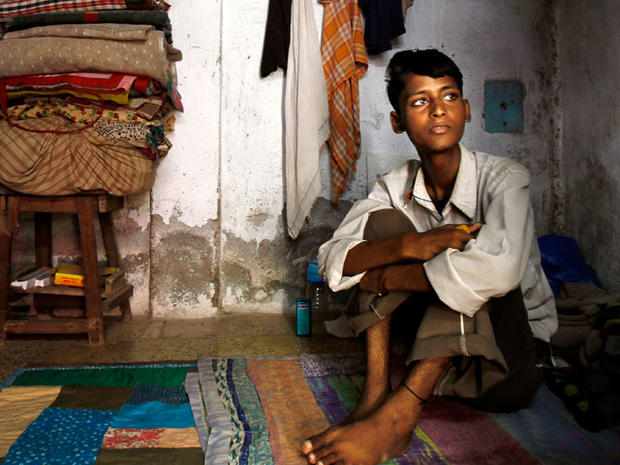"Totally drug-resistant" tuberculosis strain worries Indian doctors
(CBS/AP) Totally drug-resistant tuberculosis? That's what doctors are calling the long-feared and virtually untreatable form of the killer lung disease that's striking people in India.
It's not the first time highly resistant cases like this have been seen. Since 2003, patients have been documented in Italy and Iran. It has mostly been limited to impoverished areas, and has not spread widely. But experts believe there could be many undocumented cases.
The airborne disease is mainly transmitted through close personal contact and isn't nearly as contagious as the flu. Most cases of this "drug-resistant" TB have not been from person-to-person infection but mutations that have occurred in poorly treated patients. No one expects the Indian TB strains to rapidly spread elsewhere.
Is this particular disease actually drug-resistant? There is still debate within the public health community - the World Health Organization hasn't accepted the term, calling the cases "extensively drug-resistant TB," or XDR. But Dr. Paul Nunn, a coordinator at the WHO's Stop TB Department in Geneva, said there is ample proof that these virtually untreatable cases do exist.
"It is concerning," said Dr. Kenneth Castro, director of the CDC's Division of Tuberculosis Elimination. "Anytime we see something like this, we better get on top of it before it becomes a more widespread problem."
Ordinary TB is cured easily with six to nine months of antibiotics. But if that treatment is interrupted or if the dose is cut down, the stubborn bacteria battle back and mutate into a tougher strain that can no longer be killed by standard drugs, making the disease both more difficult and more expensive to treat.
Doctors in Mumbai have reported a total of 12 patients who failed initial treatment and also didn't respond to other medication given over an average of two to three years. One doctor, Zarir Udwadia, said in a phone interview that there is little hope for the surviving nine patients, all poor slum dwellers living in the community. He criticized the testing and treatment methods of the Indian government's TB program, saying, "It was a given that this would happen. They have had no help from the Indian TB system. They are the untouchables, so no one is making a fuss. They don't have the power to vocalize. There's going to be more family contacts. It's going to spread for sure."
India's Health Ministry did not respond to phone calls and written requests for comment Monday and last week.
"For there to be another report coming out from India is no surprise at all. Indeed, in a sense, it's surprising it's taken so long," said WHO's Nunn. This is "yet another alarm call for countries and others engaged in TB control to do their jobs properly."
In 2003, two Italian women died of highly resistant tuberculosis and there were 15 cases reported from Iran in 2009. That same year, The Associated Press reported on a case of a Peruvian teenager who was infected at home but diagnosed while visiting Florida. He was successfully treated for a year and a half with experimental high doses of medicines not typically used for TB, costing about $500,000.
Tuberculosis is an age-old scourge that lies dormant in an estimated 1 in 3 people. About 10 percent of those people eventually develop active TB, which kills roughly 2 million a year, according to WHO. Each victim infects an average of 10 to 15 others every year, typically through sneezing or coughing.
The World Health Organization has more on tuberculosis.
